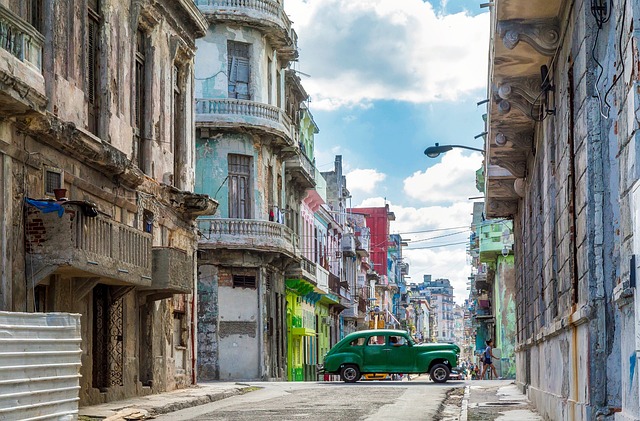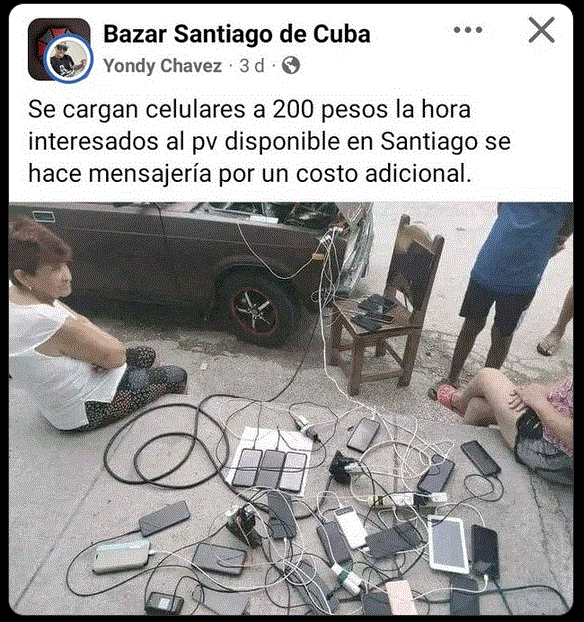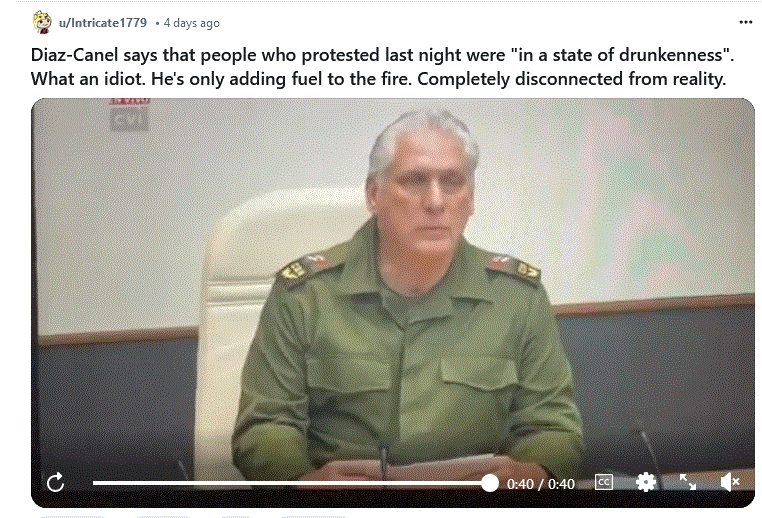
Photo by Ansalmo Juvaga
Spare a thought for the people of Cuba
The situation went from awful to something much worse.
They ran out of working electrical plants ten days ago, and endured blackouts lasting for four straight days, including one hurricane. Reports coming out suggest that though electricity is partly restored, it’s often only for four hours a day. Not surprisingly, the country is semi-paralyzed — schools are still closed and “labor services” are largely non-existent, apart from hospitals, funerals and efforts to repair the damage caused by Hurricane Oscar.
Soon they may run out of people. People were fleeing Cuba before things got this bad.
The big blackout began on Friday October 18th. In the next four days they restarted the grid three or four times only to have it crash again, and while power is sort of mostly restored the structural problems appear to be dire. Nothing really sums the state of the communist economy better than one line on Vox news which described the moment the big blackout began:
“Seven of the country’s eight thermoelectric plants, which generate power for the island, were not working or under maintenance prior to the Guiteras plant’s failure. So when the Guiteras plant shut down, there were no more energy sources.”
As if “seven out of eight” is not bad enough, there’s more. Cuba can’t get subsidized fuel anymore from Russia, Mexico or Venezuela, and they can’t afford to buy fuel at market prices. The economy is kaput. They don’t make many things that the world wants to buy, and tourism dried up with the pandemic.
It appears that either the only surviving plant suffered a malfunction, or the nation actually ran out of fuel, or both. Reuters is somewhat vague:
Cuba power grid: How it collapsed and what comes next
Reuters
Long-time ally Venezuela slashed fuel shipments to Cuba by half this year as it struggles to assure supply at home. Allies Russia and Mexico have also cut exports to Cuba, forcing the cash-strapped government to seek far pricer fuel on the spot market.
Life is tough. Generators were only able to power hospitals for emergency situations.
People are collecting wood in the streets so they can cook anything for dinner. Even before the blackout some 600,000 had no running water, and now that is worse. The BBC reports that some are now going hungry.
Predictably there are fears the exodus will grow
The word is that the government won’t let people protest the dire living conditions, but it will let them leave, so one million people have left in the last three years. (There go the dissidents, the ambitious, the motivated, and often the brightest). Since Cuba had a population of around ten million, effectively ten percent of the country left since 2021.
There are fears this will only increase:
Blackouts aren’t unusual in Cuba, but this one is different
Ellen Iones, Vox
This crisis could fuel a further exodus; an estimated 1 million Cubans have left the country in the past three years, the largest such migration in the country’s history. One Havana-based economist, Omar Everleny, told the New York Times he’s already starting to see a new wave of emigration: “Anyone who was thinking of leaving is now accelerating those plans. Now you’re hearing ‘I am going to sell my house and go.’”
Cuba Enters the Dark Ages
By Martin Gurri, The Free Press
This is not an exaggeration or a metaphor. The entire island went dark—even Havana, which has been protected from the worst of the recent blackouts. It was a civilizational breakdown. The economy quite literally ground to a halt, as factories and stores were ordered closed by the government. From elementary schools to universities, the educational system was put on pause. Hospitals turned people away. For three days, Cuba, already tattered and abused, entered a special circle of hell reserved for the most mismanaged nations on earth.
The material catastrophe is self-evident and can be measured empirically. The depth of human suffering is impossible to gauge from a distance. Without refrigeration, food—always hard to obtain—was spoiled. Mothers lacked milk for their children. Without fans or air conditioners, everyone, including the very young and the very old, was exposed to Cuba’s blistering temperatures. Without elevators, the old and the sick who lived in apartments were forced to sleep outdoors, in the heat and among the mosquitoes. Without traffic signals, venturing to the streets became a death-defying nightmare. Without light, the human mind itself begins to shut down—the Cuban public, frozen in place by an incompetent and antiquated regime, sank to almost metaphysical levels of hopelessness.
Bad governments can ruin a lot of lives:
People are angry. Online many people complain that the government built many fancy hotels for tourists, instead of fixing the electricity grid for the people.
Despite the crisis and the hurricane, Cuba’s President Miguel Díaz-Canel somehow found the time to advise the citizens that “if they protest on the street they will be prosecuted”. He put on military garb and said the protestors were just drunks, as if sober people would not mind having no functional economy.
It’s hard to get stories out of Cuba but ex-pats or friends outside Cuba post opinions on Reddit and they are gloomy.

The problems in the Cuban grid have been decades in the making.
The eight power plants are largely crude fuel oil plants of about 400MW. In total, theoretically, they could generate 2,500MW. In actuality, they are badly built, badly maintained, and 30 to 40 years old. Power generation has declined by 25% in the last five years.
‘There is no money’: Cuba fears total collapse amid grid failure and financial crisis
Ruaridh Nicoll in Havana, The Guardian
“It’s very hard to restart a power station,” said a retired engineer from Antonio Guiteras, who asked to remain anonymous. “You need to produce a lot of electricity just to get it going.”
Antonio Guiteras was built in 1989, and is now battered and obsolete. “The truth is that it was built rotten,” said the engineer. He told harrowing stories of working with faulty safety equipment, political management who would disappear when problems arose and a system long pushed to its limit.
“There was a scheduled maintenance programme, but it was never followed,” he said. “The requirements were too tight. We were told: ‘The factory has to produce, so patch it up.’”
Somehow, despite Cuba being almost a failed state, there are glorious plans to build 26 solar farms with a capacity of one gigawatt. As the Guardian tells it, China has offered the parts to make them, in return for access to Cuba’s nickel deposit. Though there are fears that the people who might have been able to build the solar plants have already left Cuba. What then?
The gigawatt of solar (if it even happens) will only provide about one third of existing demand at most, and will obviously only work in the middle of the day, and possibly not at all after the first hurricane. As Broken Hill, and Alice Springs know, when things are desperate, solar panels are not the answer. Baseload comes first.
If Cuba can’t get fuel oil, and get the grid functioning, surely food and water will run out, and people will be forced to make some very tough decisions.
If the grid can’t supply enough energy for the people, in the capitalist world the answer is “more grid” but in the communist world, it apparently means “less people”. In this case Cubans are “lucky” enough to be allowed (at the moment) to walk or swim away, but for how long?
h/t Chad and another ian.
h/t Tony Thomas one mega corrected to giga…


